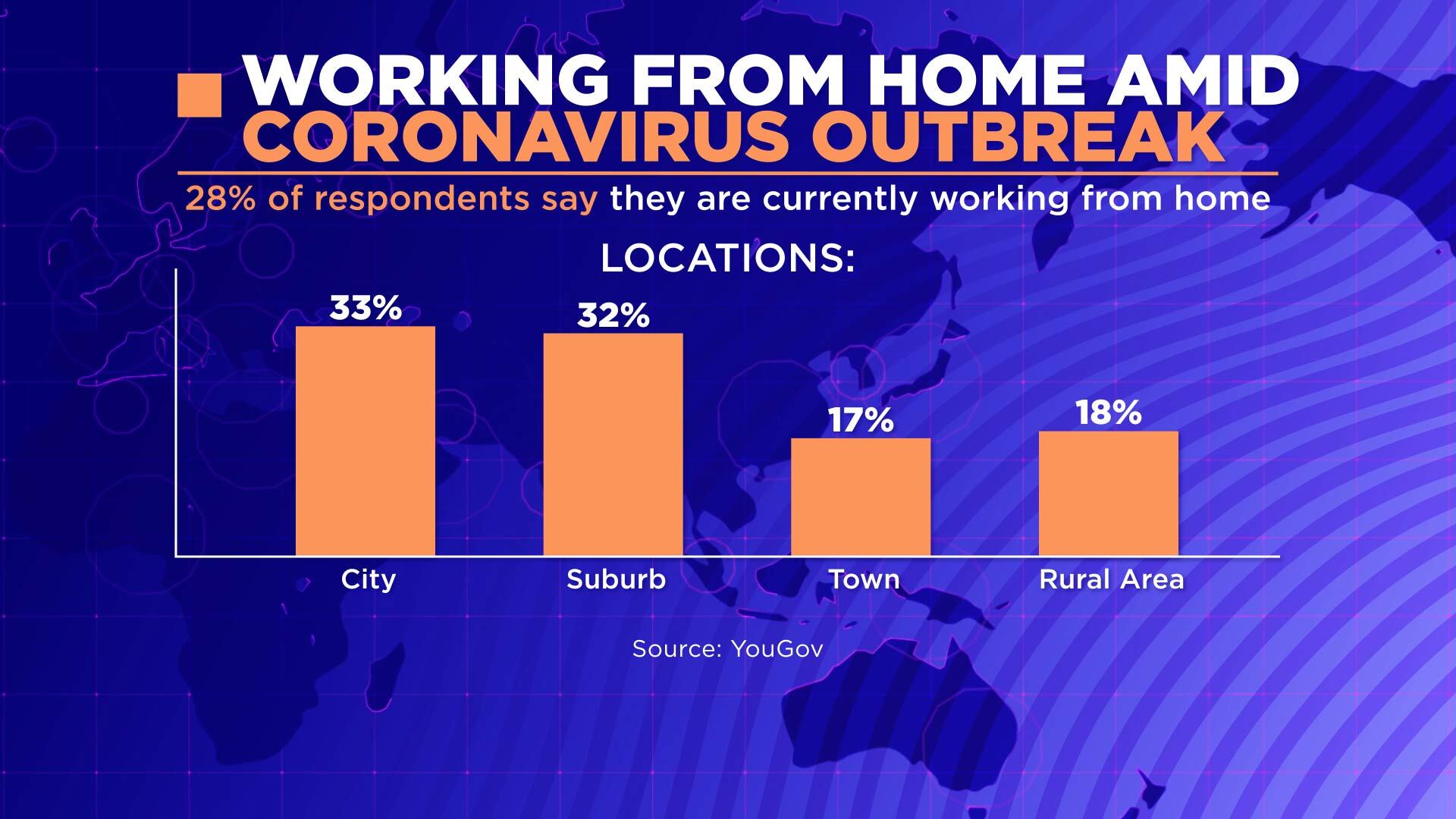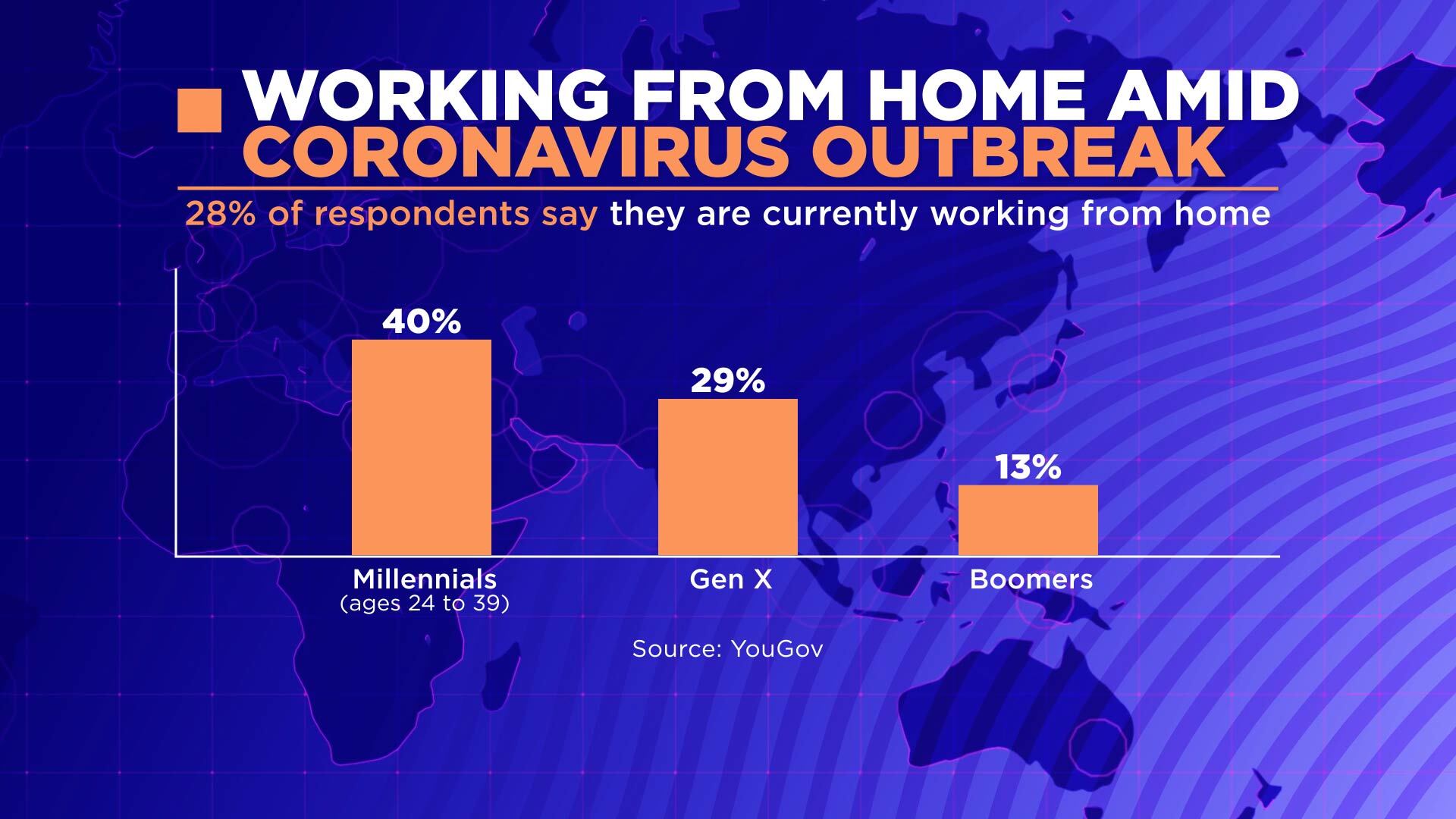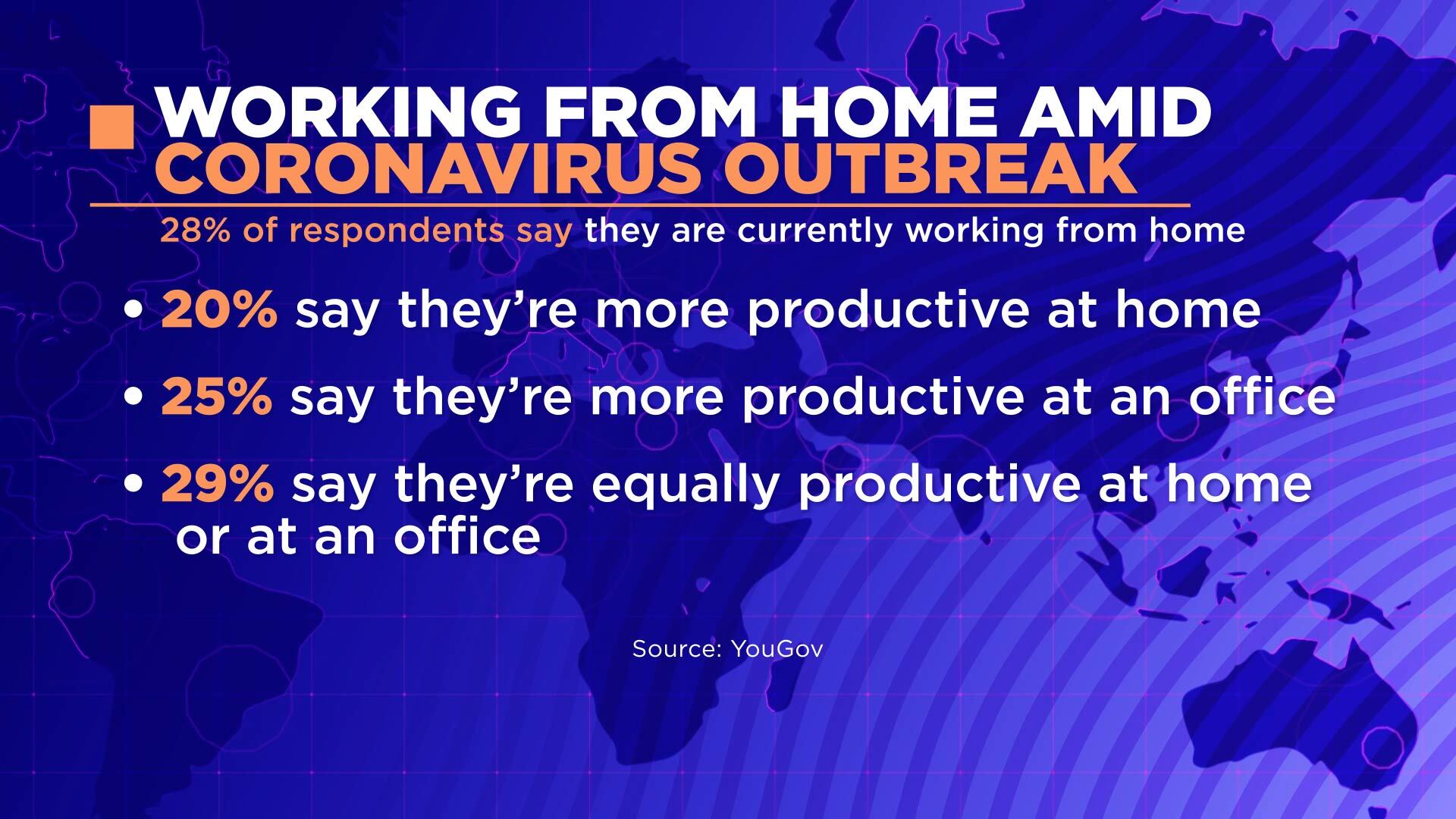While many companies are now allowing or enforcing work from home policies, a new study by YouGov found that more than half of Americans have never done so.
Of the 1,075 respondents polled by YouGov exclusively for Cheddar on Monday, 54 percent said they had never worked from home prior to March 1. Around 41 percent said they had, and 5 percent said they have never worked.
YouGov had not previously polled on this question before so there isn’t a one-to-one comparison, but numbers from the U.S. Bureau of Labor Statistics suggest that remote work has not been a common practice.
Last year BLS found that about 26 million Americans work remotely in some capacity, which is just 16 percent of the total workforce.
The novel coronavirus outbreak has caused many countries to shut down, and cities to slow down. And the YouGov study shows there is a greater likelihood of those living in denser areas to report working from home.
According to the survey, 28 percent of respondents said they are currently working from home — with

When examined by age, a greater percentage of millennials (40 percent) say they are working from home compared to Gen X (29 percent) and Boomers (13 percent).

The last big question about working from home is productivity — and the most number of people said they feel equally as productive at home (29 percent) compared to those who say they are more productive at the office (25 percent). The fewest number of people (20 percent) say they are more productive at home.













